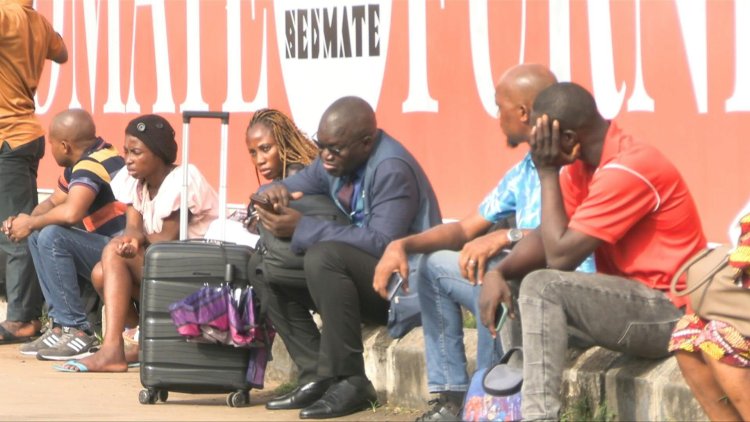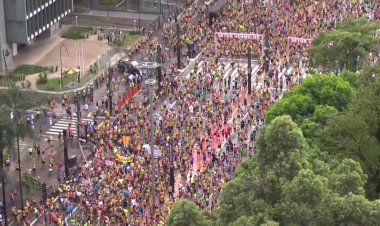Nigerian Labor Unions Shut Down National Power Grid

Nigerian labor unions shut down the national power grid and disrupted flights as they launched an indefinite strike that closed schools and public offices after failing to reach a new minimum wage deal with the government.
Africa's most populous country is facing its worst cost-of-living crisis in a generation, with double-digit inflation leaving many Nigerians struggling to afford food.
The two main unions, the Nigeria Labour Congress (NLC) and the Trade Union Congress, said they urged workers to strike after the government refused to increase its minimum wage offer beyond 60,000 naira ($40) a month.
The current minimum monthly wage is 30,000 naira and the NLC said it had called for the minimum wage to rise to 494,000 naira.
Following crunch talks, the government released a statement saying it was "committed to a National Minimum Wage that is higher than 60,000 naira" and that the two sides would meet "every day for the next week" in order to reach an agreement on the issue.
Government buildings, petrol stations and courts in the capital Abuja were closed, while the doors to the city's airport were also shut and long queues formed outside.
In the economic capital Lagos, the strike also took effect, with bands of schoolchildren walking home from empty schools and workers picketing outside a courthouse where the gates were padlocked.
The unions are also protesting an electricity tariff hike and there have been widespread blackouts after the Transmission Company of Nigeria said workers had shut down the national grid overnight.
The United Nigeria Airline told customers that airports across the country had been closed due to the strike. In a statement on X, Nigerian carrier Air Peace also warned of "disruptions or possible cancellations" across its network.
In the northern city of Kano, government offices and public schools were closed.















